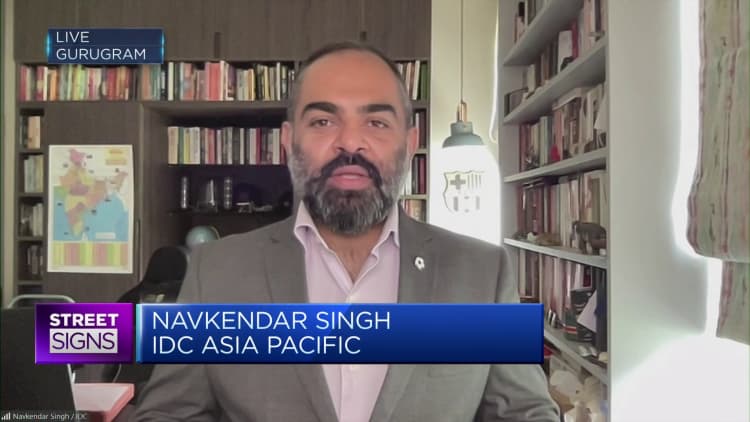Asia-Pacific markets were mixed on Thursday as investors on Wall Street digest more earnings reports from names like Netflix, IBM and Morgan Stanley.
While many of the companies reporting topped analysts' low-bar estimates, a lack of forecasts from the major companies also left investors on edge.
Japan's Nikkei 225 gained 0.18% to end at 28,657.57, and the Topix marginally fell to end at 2,039.73 as Japan's trade deficit hit a record high of 21.7 trillion yen ($161.14 billion) for its full fiscal year ending March.
In Australia, the S&P/ASX 200 was down 0.04% to finish at 7,362.2, while South Korea's Kospi slid 0.46% to end at 2,563.11 and the Kosdaq dipped 2.58% to close at 885.71.
Mainland Chinese markets were also all down, with the Shanghai Composite down 0.09% to end the day at 3,367.03. The Shenzhen Component closed 0.37% lower at 11,717.26.
Hong Kong's Hang Seng Index was up marginally, but the Hang Seng Tech index was down 0.1%.
Overnight in the U.S., the S&P 500 finished little changed Wednesday and inched 0.01% lower, while the Nasdaq Composite eked out a 0.03% gain. The Dow Jones Industrial Average slid 0.23%.
— CNBC's Samantha Subin and Brian Evans contributed to this report





